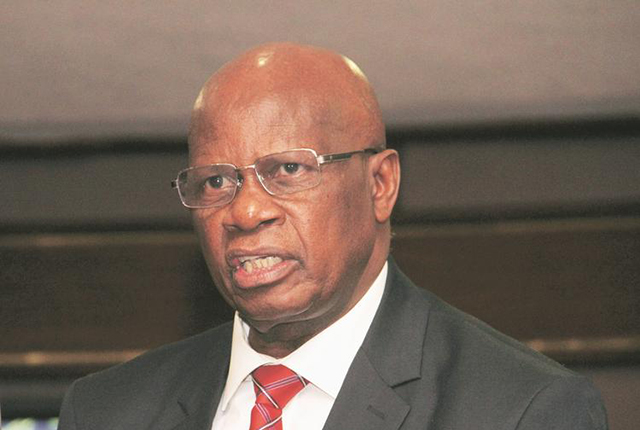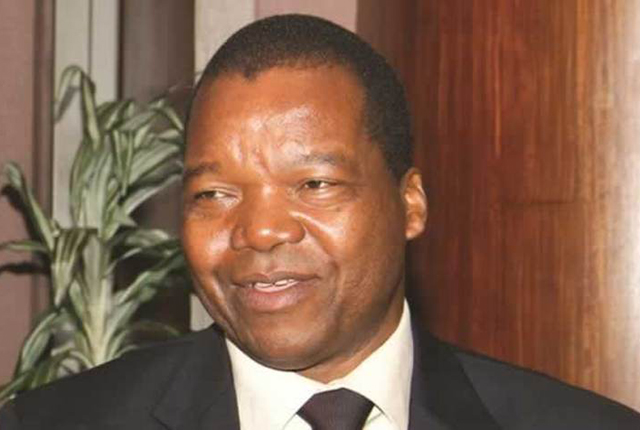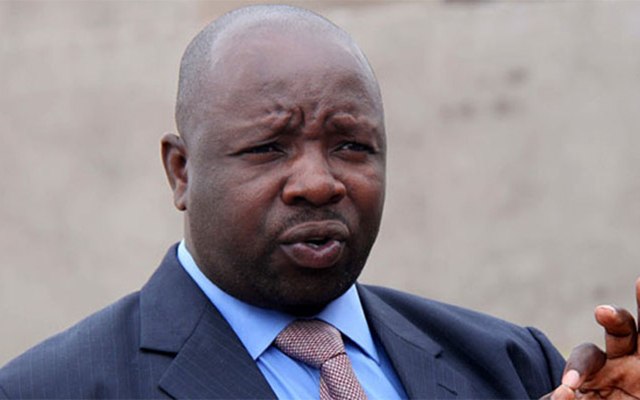Mangudya’s journey begins now

My Turn with Tichaona Zindoga—
The job of John Panonetsa Mangudya as Reserve Bank of Zimbabwe Governor begins now. Or, let’s say it began 72 hours ago with the introduction of bond notes onto the market.Bond notes, which have generated intense heat in arguments inspiring hope and triggering panic almost in equal measure, will make or break John Mangudya.
Let’s pray for him and hope for the best.
There are many others who wish him ill.
It is scarcely impossible to imagine that Mangudya would not have imagined what he signed up to.
The job of the RBZ governor is arguably one of the toughest assignments imaginable, given the fact that the central bank chief is the face of monetary policy in a country that recorded historic hyperinflation of up to 500 billion percent.
Today, the products of that hyperinflationary era — the multi-zero billion and trillion notes — are selling like hot cakes as collector’s items.
Perhaps it’s a good sign.
Perhaps it’s a bad sign for John Mangudya.
Maybe we won’t go back to that era again.
Or we are back down that road.
Mangudya came to the helm of RBZ in May 2014.
Not many people have heard him speak or make public appearances and histrionics like his predecessor Gideon Gono.
From a policy perspective and as seen from outside, Mangudya is a careful man.
His CV does not look too bad either (BSc, MSc Economics, University of Zimbabwe; PhD in Business Administration, Washington International University; 27 years of banking experience at RBZ, African Export-Import Bank and CBZ.)
Fellow bankers were delighted at his appointment and the Bankers Association of Zimbabwe hoped he would “return our markets to their glory days” while for FBC Holdings chief executive and past president of the Bankers Association of Zimbabwe, John Mushayavanhu, Mangudya was “the best man for the job”.
Finance Minister Patrick Chinamasa said: “Dr Mangudya is a Keynesian economist who believes in discretionary fiscal and monetary policies and in the rational expectations hypothesis.”
You may not be too familiar with the niceties of that motivation, but caution, caution and caution appear to be the philosophical import of the RBZ chief.
And he has acted cautiously — even to the point of timidity — witness the continued delays in releasing bond notes onto the market.
He is promising caution and discretion with the issue of bond currency both in their coin and note forms.
His first round with the coins was a success.
Let us not begrudge him that.
The coins were rejected at first in favour of the rand coins but confidence later grew so exponentially that the rand was soon rejected.
The idea was simple; he maintained a tight leash on the supply of these coins so that they would not flood the market and thus lose value.
It will be recalled that the introduction of coins was backed by a $50 million facility from Afreximbank.
At the last count, not all this money’s worthy had been minted as bond coins hence the confidence that followed the bond coins.
The coins have been with us since December 2014.
One would have assumed that bond notes are a logical development from coins given the basic principle that money should be portable (imagine carrying around 40 pieces of $0,25, making $10 — or even worse) but things are not as simple in Zimbabwe.
Suddenly, Mangudya’s commendable principle and practice with the first facility was ignored.
It was feared that he would print more money than provided for under the latter $200 million facility.
This was largely irrational — and perhaps offending that a sober man like Mangudya, at least given his initial experiment and all other things appearing equal, would suddenly turn a madman with his hands on the printing press.
Not even Gono was mad, to all intents and purposes.
There is a silly assumption that monetary authorities would be delighted to just walk to the next paper manufacturer, grab as many reels of bond paper and set printers running with reckless abandon.
We do not think they are that stupid.
And please do not insult our intelligence with that suggestion.
Mangudya cannot ignore lessons of history and the necessity of prudence, surely?
Which makes the whole campaign against bond notes at best cynical and worst criminally misleading.
It is not lost on us that there are quarters that do not want this country to succeed and this is informed by a destructive politics.
It is the same brand of politics that invited external forces that precipitated hyperinflation through denying Zimbabwe foreign market for its goods, balance of payment support and attempts at destroying agriculture.
The same quarters enthused that Zimbabwe would rather crash and burn if they did not access power.
Zimbabwe went down and down.
It can only go up now and it is a fact that conditions that obtained in 2006-8 are quite different from today, not to mention the valuable lessons that came with that period.
The real enemy is not the currency.
The real enemy is destructive behaviour, that is economic sabotage, internally or externally wrought.
And we are encouraged to see some of our colleagues in the media — who were in the forefront of resisting and encouraging resistance to the new initiative — witnessing what one Joram Nyathi would call a “fleeting visit” of rationality.
Yesterday, the Daily News correctly identified a “profiteering mentality prevalent in Zimbabwe” and rampant illegal money exchange as the chief culprits where currency stability is concerned.
The paper called on Government to severely punish money-changers and “unscrupulous elements who want to benefit from the circulation of bond notes”.
Perhaps there is hope for Zimbabwe, if nabobs of negativity in all spheres of life begin to think positively about the country.
But much will depend on what Mangudya himself does with the bond notes and subsequent monetary policies.
It will also depend on what fiscal policies Chinamasa will pursue (and that is where the Keynesian concept comes in underscoring that government intervention can stabilise the economy or that total spending in the economy has its effects on output and inflation).
The two have been working together, ever cautiously, for the past two years — even to the frustration of some political heads.
Now the real deal begins for Mangudya.
Let’s pray for him. There are all the forces of darkness ranged against the success of his bond note initiative.











Comments